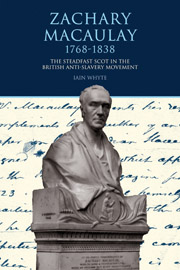Book contents
- Frontmatter
- Contents
- Foreword
- Acknowledgements
- Abbreviations
- List of Illustrations
- Chronology
- Introduction
- 1 From Inverary to the Sierra Leone River
- 2 Slave Traders and French Invaders
- 3 Captive in Love—to Selina Mills
- 4 The Trials of the Governor
- 5 Caught in a Multitude of Tasks
- 6 Clapham, Family and Friends
- 7 Attempting to Win France for Abolition
- 8 ‘Let Us Look it Up in Macaulay’—The Anti-Slavery Arms Manufacturer
- 9 Commerce and Conflict
- 10 Triumph and Tragedy on the Path to Glory
- 11 As Others Saw Him—As We Might Assess Him
- Bibliography
- Index
4 - The Trials of the Governor
- Frontmatter
- Contents
- Foreword
- Acknowledgements
- Abbreviations
- List of Illustrations
- Chronology
- Introduction
- 1 From Inverary to the Sierra Leone River
- 2 Slave Traders and French Invaders
- 3 Captive in Love—to Selina Mills
- 4 The Trials of the Governor
- 5 Caught in a Multitude of Tasks
- 6 Clapham, Family and Friends
- 7 Attempting to Win France for Abolition
- 8 ‘Let Us Look it Up in Macaulay’—The Anti-Slavery Arms Manufacturer
- 9 Commerce and Conflict
- 10 Triumph and Tragedy on the Path to Glory
- 11 As Others Saw Him—As We Might Assess Him
- Bibliography
- Index
Summary
Zachary Macaulay sailed from Portsmouth on 23 February 1769 and reached Sierra Leone on 18 March. James Watt, the First in Council when Macaulay had been acting Governor, had died and William Dawes, who was anxious to get home, left on 25 April. Macaulay was therefore appointed Acting Governor again. The Council Minutes did not record him officially as Governor until it became clear that Dawes was not to return. Macaulay certainly did not covet the post, to judge by his rather desperate comment to Selina: ‘Dawes’ return which I dare not hope, would no doubt make every difficulty (over staffing) to vanish’.
Although he returned to a colony which had made a remarkable physical recovery from the devastation of the French invasion in 1794, the human tensions had increased rather than diminished. The powers of the Hundredors and Tythingmen continued to be a contentious issue with the Governor and the policy of quit-rents was no less of a tinder box. There was a continual threat from French ships in the area. Relationships with local rulers were as delicate and volatile as ever. As if that was not enough, an additional major headache would plague the Governor throughout most of this second period in the colony. Two English missionaries, one Baptist and the other Methodist, were to lead continual protests from the settlers over what they saw as an attack on their religious freedom when the Governor insisted that marriages could only be legally conducted by those appointed by the Company.
- Type
- Chapter
- Information
- Zachary Macaulay 1768-1838The Steadfast Scot in the British Anti-Slavery Movement, pp. 72 - 96Publisher: Liverpool University PressPrint publication year: 2011

